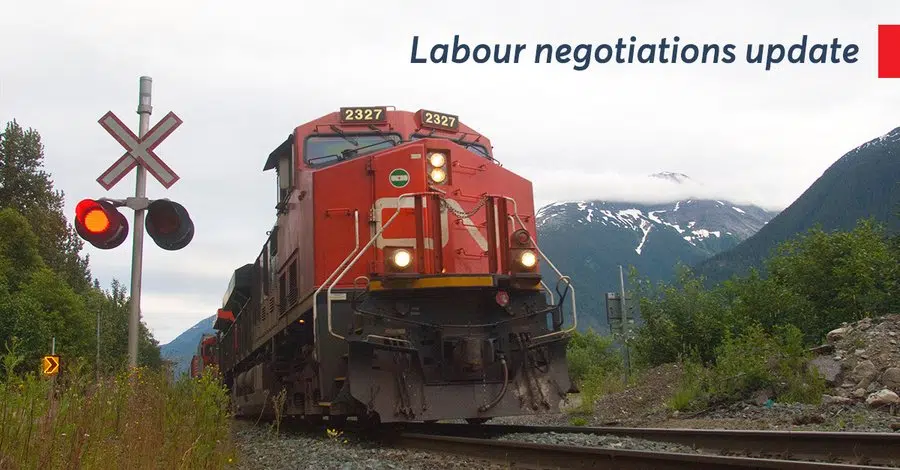
Many people were relieved and even a little surprised by Tuesday morning’s announcement of a tentative contract agreement.
Normal operations will resume early Wednesday morning across the country. Details of the agreement were not released and 3,200 conductors and yard crews will be hold ratification votes over the next eight weeks. The main stumbling blocks in the dispute were employee safety and scheduling issues.
The seven day strike has tied up all kinds of commodity shipments—grain, propane, potash and lumber—just to name a few.
“The damage has been done and we are behind the eight-ball,” said Gunter Jochum, president of the Western Canadian Wheat Growers. “It will probably take until next summer to make up the shortfall.”
A rough calculation indicates CN would have shipped 5,600 rail cars during the past week, which amounts to about 500,000 metric tonnes of grain. There are also 35 ships waiting for grain on the West Coast, as well as lost crushing time at canola oil processing facilities.
The Agricultural Producers Association of Saskatchewan (APAS) says CN needs to update its winter shipping plan for grain.
“We want to ensure that Saskatchewan grain will move out in a timely fashion,” said Todd Lewis, APAS president. “We don’t want to be the last thing moved in this backlog. We want to see space is made available for grain, and specifically grain from Saskatchewan.”
Lewis notes that during previous grain backlogs, railways prefer to move product on main lines and from Alberta first in order to boost transport statistics.
He adds there should not be any layoffs at CN—something the railway indicated was going to happen prior to the strike.
Jochum says the strike was very frustrating from a farmer’s perspective because it was very hard to pick a side. Many farmers don’t like unions, but they could understand concerns about working long hours under difficult conditions.
The Alberta Wheat and Barley Commission says it’s time to consider applying essential service provisions to rail service affecting grain movement. It points to the fact that longshoremen are covered by such legislation already and believes those same provisions be extended to rail workers.


























